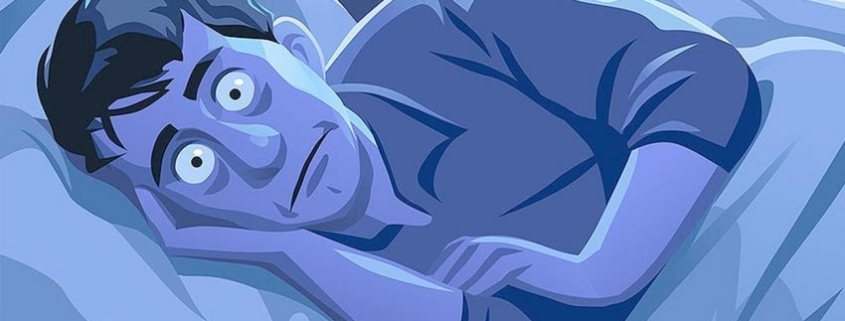Insomnia
Insomnia is a sleeping disorder. Signs and symptoms may include difficulty falling asleep, waking up during the night or the inability to get back to sleep after waking up.
To find Health should be the object of the physician. Anyone can find disease.” AT Still MD Restorative sleep is what helps us wake up ready to tackle the new day. A good night’s sleep doesn’t only recharge your batteries; it also helps keep the body in good physical and psychological condition. Insomnia is a sleeping disorder. Signs and symptoms may include difficulty falling asleep, waking up during the night or the inability to get back to sleep after waking up. Insomnia can sap not only your energy level and mood but also your health, work performance and quality of life. Inevitably sufferers will not feel well-rested after a night’s sleep; they may feel tired, experience changes in mood and behaviour, anxiety, be impatient and irritable during the day as well as have difficulty concentrating and memory issues. This cognitive delay can be dangerous while driving a car or disruptive to their work.
Insomnia may be the consequence of mental health factors (stress, anxiety and depression), trauma, medical conditions, side effects of some medications, traumatic birth, exposure to WIFI during sleep, overexposure to screens, unhealthy sleep habits, noisy or uncomfortable environment, dietary factors including caffeine, nicotine or alcohol consumption, shift work, muscular tension caused by bad posture and/or certain physiological factors.
Pain and sleep are intricately connected. Muscle pain, old injuries, and chronic pain can all disrupt your sleep, wake you up, or make falling asleep very difficult, especially if you are suffering from chronic pain (greater than 3 months), and the less sleep you get, the more intense your pain may feel; it’s a vicious cycle. Even tightness in the body gives mixed signals to the nervous system. Misinterpretation leads to incorrect responses within the body. Inefficient communication in the body results in disease. Although the odd night’s sleep will not harm your health, long term sleep disruption can have a profound effect on physical and mental wellbeing. Poor quality of sleep has been linked to many diseases including high blood pressure, a weakened immune system, obesity, cancer, stress, mental health issues, diabetes and other conditions.
The osteopathic assessment to insomnia often finds this condition to be multi factorial; clinically there are common factors present in patients, their stress levels are high, there are often one or more musculoskeletal dysfunctions present and there may be an emotional component. The spine with its peripheral nerves is directly connected to the central nervous system. A misalignment of the vertebra can disturb the nervous system to the point of causing insomnia. When you have one or more misalignments in the upper neck, this bio-mechanical spinal restriction in mobility may produce clinically significant effects. As a result, your sleep cycles (circadian rhythms) become disturbed, and you may find it hard to fall asleep or stay asleep. Circadian rhythms have effect on body temperature, sleep and wakefulness, and various hormonal changes. Specific osteopathic techniques to manipulate joints, muscles, fascia, reflexes and cranium, an osteopath can significantly help normalise normal functional movement within the body and therefore aid physiology which may affect the source of insomnia. Due to the gentle nature of the treatments, the nervous system is not overstimulated as not to exacerbate symptoms further.
Any symptoms of pain which could be contributing to your restlessness can be dealt with during the sessions with a focus on a complete holistic approach of musculoskeletal, neurological and vascular systems to provide optimal health and restore correct biomechanics which may otherwise by interfering with sleep patterns. Following a thorough evaluation, an osteopath can also provide advice on a better sleeping position and environment, posture, appropriate exercises, supportive mattress, and appropriate pillow to help you sleep well. Patients seeking help managing the symptoms of insomnia should first be carefully evaluated to identify the source of their sleep disorder. Combined with other therapeutic approaches, osteopathic care can be used to treat insomnia. A balanced nervous system permits the body to rest, improves functionality, reduces overall tension and promotes a deeper sleep.
View a list of common complains that Osteopathy can assist with
Discovery the benefits of Osteopathy
- What is Osteopathy?
- Adult health issues
- Babies and Children
- During and after pregnancy
- Common Complaints
- Testimonials
- Sports Injuries
- Genral Osteopathy FAQs
- The Science & Reasearch



